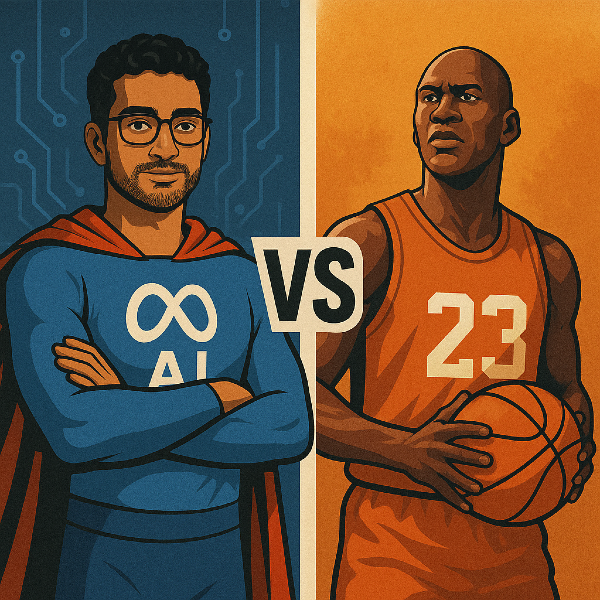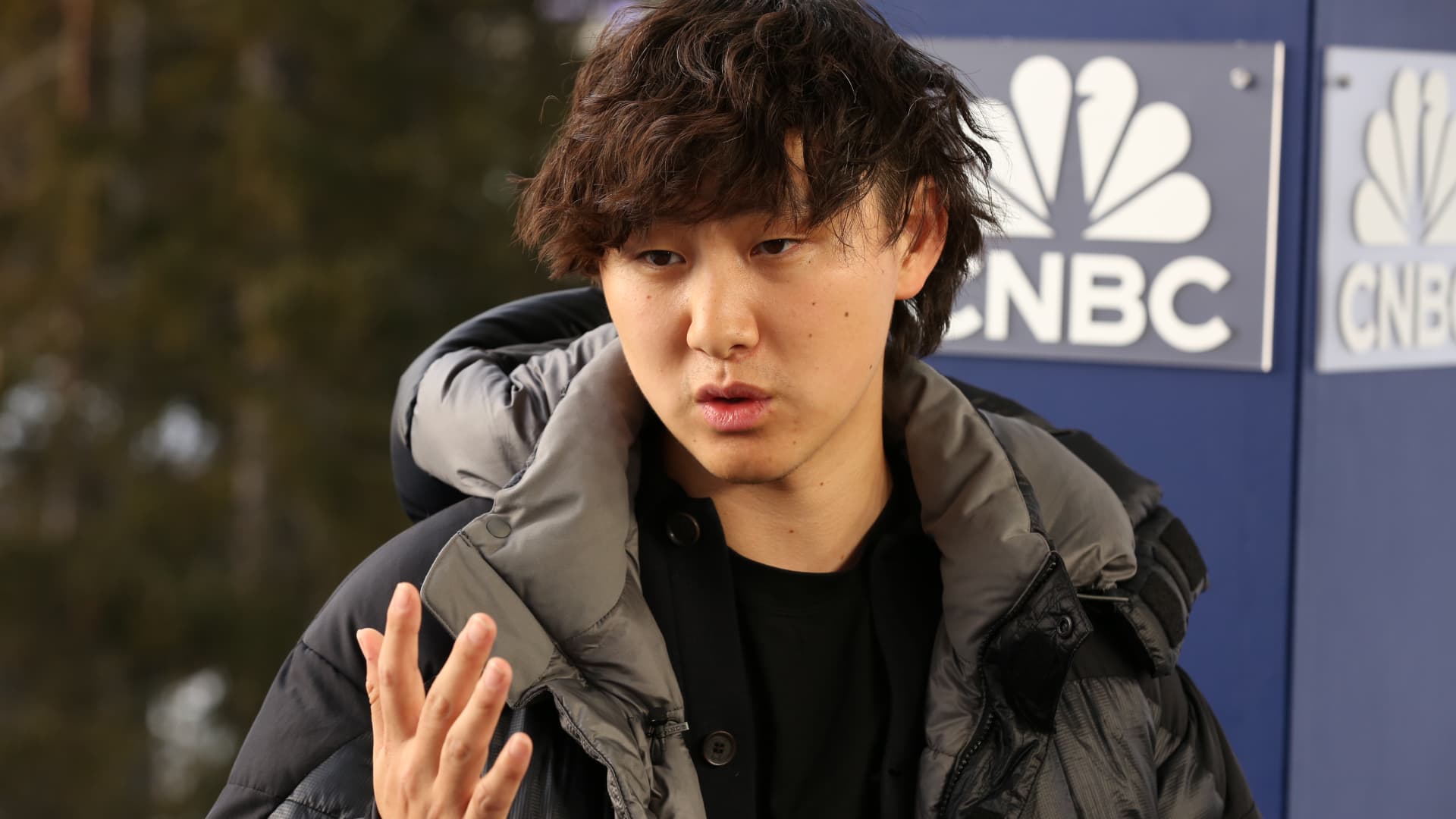AI engineers are the new megastars - do they need agents?

In an era where artificial intelligence is transforming every aspect of industry, AI engineers and researchers have become the MVPs of the modern economy. Once considered behind-the-scenes technical specialists, these engineers are now commanding salaries and benefits that rival those of elite professional athletes, movie stars, or CEOs of major companies. Big Tech and high-stakes startups are in a talent arms race, and the numbers are staggering.
While not exact or totally inclusive, some of sports' top earners include Cristiano Ronaldo (soccer), $275M; Steph Curry (basketball), $156M; Tyson Fury (boxing), $146M; and Dak Prescott (football), $137M. Top athletes are known for jaw-dropping paychecks. But now let’s take a closer look at the new champions of compensation: AI engineers/researchers at the top of their game.
OpenAI has made headlines by offering total compensation packages of $900K to $1.9M for senior research engineers and machine learning specialists. That’s more than some NFL players, and comfortably within NBA rookie league players' territory. OpenAI has also issued retention bonuses of around $1.5M to roughly 1,000 research and engineering staff.
More recently, OpenAI acquired Statsig for $1.1 billion. It's unclear whether OpenAI acquired this for the technology, for the team, or maybe just the founder. Yet another example of a significant acquisition that could be more about the same trend.
The average NFL salary across all positions hovers around $2.7M per year, with the median player earning approximately $860K. Backup or lower-tier quarterbacks often make well under top-tier numbers, with many falling in the $1M–$10M range, depending on contract specifics.
Anthropic, a rising AI research lab, offered salaries between $300K and $500K, plus equity worth millions, even for mid-level roles. For a researcher with niche capabilities in AI alignment or reinforcement learning, total comp could rival the annual earnings of Formula 1 drivers or Premier League stars.
- Mid-level engineers at Anthropic earn $300K–$500K, with equity worth millions thanks to a surging valuation.
- In March 2025, Anthropic raised $3.5B in a Series E, hitting a $61.5B valuation. Total funding to date: ~$14.3B. Employees can now sell up to $2M worth of equity via a share buyback at the $61.5B valuation.
- Founders like Dario and Daniela Amodei each hold ~2%—making them billionaires on paper. Talks are underway for another $5B raise, which could push valuation to $150–$170B.
At Meta (Facebook), staff engineers working on generative AI systems are earning $700K–$1M+, including bonuses and stock grants, which are on par with high-earning tennis pros and Olympic medalists in endorsement-heavy sports.
But that was last year's news...
Meta has taken the AI compensation war to unprecedented heights. Mark Zuckerberg has personally dangled mind-bending pay packages, as much as $300 million over four years, to lure top researchers from OpenAI and other rivals, with more than $100 million in total compensation for the first year alone. These offers, including immediately vesting equity and cutting-edge computing access, underscore how the AI revolution is rewriting the rules of talent valuation, with payouts now rivaling or surpassing even the most elite sports and CEO compensation packages.
These engineers and researchers joined Meta to work on ambitious AI projects, including the newly formed Meta Superintelligence Labs. The hiring spree reflects Meta's aggressive push to compete with other leading AI companies.
- Ruoming Pang: Formerly the head of Apple's Foundation Models team, Pang was hired by Meta in July 2025.
- Alexandr Wang: The co-founder and former CEO of Scale AI, Wang joined Meta in mid-2025 as the Chief AI Officer. The details of the Scale AI deal are a bit hard to understand, but it likely makes Wang worth > $3B.
- Nat Friedman: The former CEO of GitHub, Friedman co-leads Meta's Superintelligence Labs with Wang.
- Daniel Gross: The co-founder of AI startup Safe Superintelligence and an investment partner of Nat Friedman, Gross joined Meta in July 2025.
- Frank Chu:An Apple AI executive, Chu joined Meta's Superintelligence Labs in August 2025.
- Shengjia Zhao, a co-creator of ChatGPT and former lead scientist at OpenAI.
- Trapit Bansal, a top reinforcement learning researcher.
- Ji Lin, Hongyu Ren, and Jiahui Yu, researchers who worked on releases like GPT-4o.
- Lucas Beyer, Alexander Kolesnikov, and Xiaohua Zhai, who were formerly based in OpenAI's Zurich office.
- Jack Rae, a principal researcher, and Pei Sun, a former researcher from Google DeepMind.
- Joel Pobar, a researcher, has also moved from Anthropic.
- Seattle's own Matt Deitke recently accepted a pay package rumored to be worth > 250M. He's pretty awesome, but he's 24!
While it is not clear exactly how much these people are paid, they are likely in the >100M club.
Some reference posts include this one (which makes a similar point I am making here).
Amazon and Google DeepMind both offer 7-figure packages to recruit and retain engineers focused on AI infrastructure, large language models, and model optimization—especially in their AI-first moonshots.

Why Is This Happening?
The reasons behind this seismic compensation shift are multifaceted:
- Scarcity of Talent: The number of people who can build, fine-tune, and scale massive AI models is still limited. Think of it like professional sports: few people can run a 4.3-second 40-yard dash, and even fewer can engineer multi-billion-parameter LLMs.
- Impact at Scale: An elite AI engineer might write code that affects billions of users, optimizes billions in revenue, or advances national security. Their code isn’t just valuable, it’s mission-critical.
- AI Arms Race: With companies racing to dominate the next platform shift, top AI engineers are caught in a bidding war that drives compensation ever higher. Even smaller startups, flush with venture capital, are joining the fray with big checks.
And, if you are a well-funded startup, you need to try to keep up. Some examples include;
- Perplexity AI: Raised valuation to $20B; offers $1M+ to top LLM engineers.
- Poolside AI Raised $500M, hires with 7-figure equity grants.
- Harvey: Legal AI startup offering $500K–$900K comp.
- Etched.ai: Hardware startup, equity-heavy deals worth $600K–$800K.
- Gradient Labs: Raised €11M, hires ex-DeepMind with multimillion-dollar upside.
Celebrity Effect: Engineers like Andrej Karpathy and Ilya Sutskever have become recognizable figures. In some tech circles, their names carry more cachet than an MVP trophy.
Depending on where these people are going, their compensation might be more cash vs. stock. And for stock, some of it might be publicly traded (liquid), making it more like cash. If a private company, whose stock is not liquid, might actually have more appreciation. Companies like OpenAI and Antropic's stock value has appreciated very rapidly.
Even beyond engineers, the AI revolution is rewriting the rules of compensation: for instance, OpenAI’s all-equity acquisition of Jony Ive’s hardware startup io for an estimated $6.5 billion. Bringing Ive and his team into the fold underscores just how much value is converging around AI talent and innovation.
Mind Over Muscle
While athletes peak in their 20s or early 30s, AI engineers have longer productive careers, often hitting their stride well into their 40s and 50s. Instead of stadiums, their arenas are GPU clusters and research papers. Their tools: Python, PyTorch, and transformer models.
And increasingly, their influence extends beyond codebases. Top engineers shape public policy, define ethical norms, and direct the strategic focus of trillion-dollar companies.
The Future: More Than Just Money
As AI becomes embedded in every line of business, healthcare, education, defense, and government (see Palantir), these engineers won’t just be rich; they’ll be powerful. Already, their work determines how we search, speak, write, drive, and even think.
Will AI engineers continue to command superstar pay? Almost certainly. How high will it go? But the real question is how their growing influence will shape the world we all live in.
Will new “talent agents” or agencies emerge? Do they already? In the immortal words of Jerry McGuire, "show me the money"!
